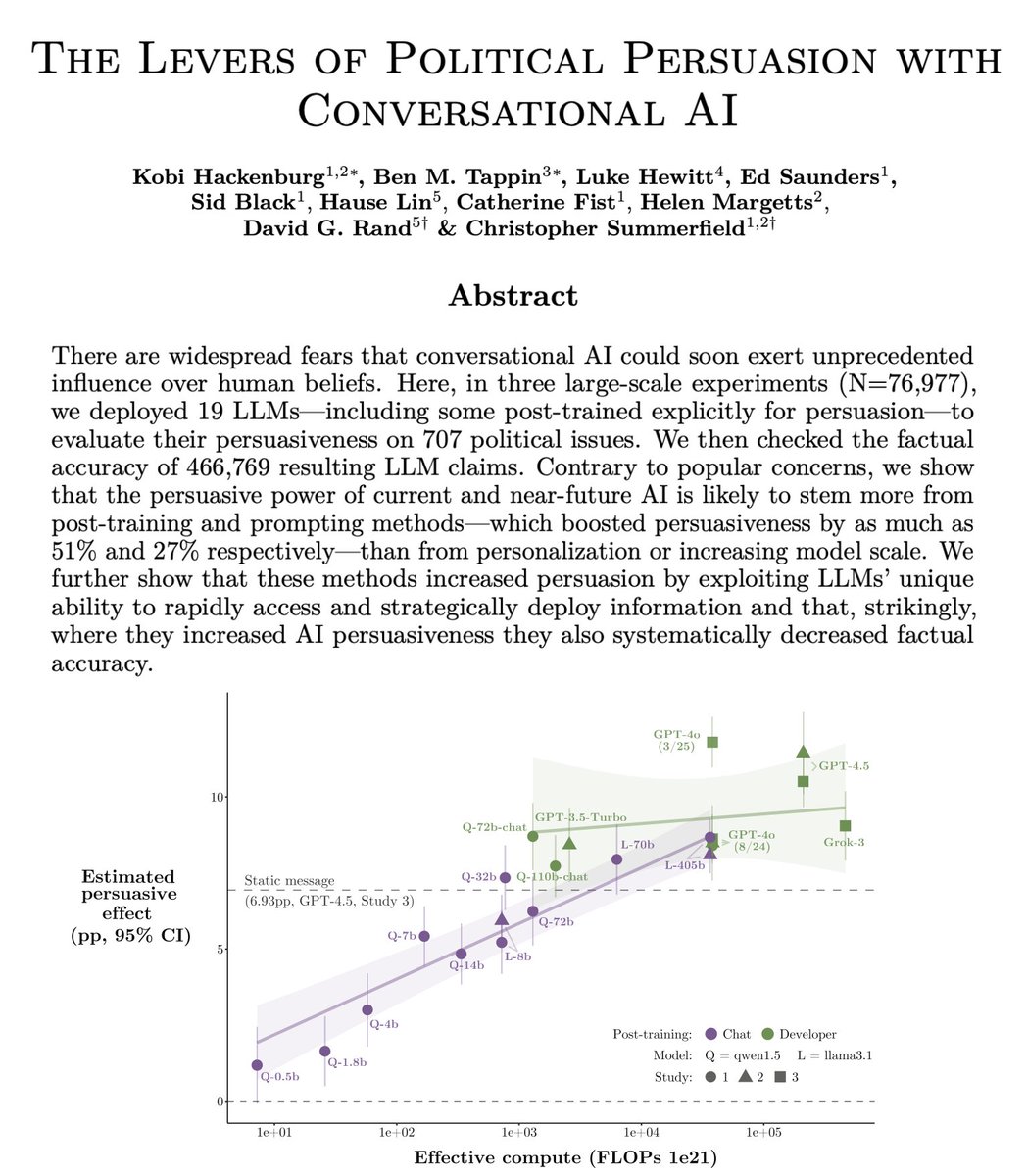
phd candidate @oiioxford @uniofoxford | research scientist @AISecurityInst | AI, social data science, persuasion with language models
How to get URL link on X (Twitter) App


 Findings (pp = percentage points):
Findings (pp = percentage points):
 RESULTS (pp = percentage points):
RESULTS (pp = percentage points):




 We find that:
We find that: 
 Our findings suggest:
Our findings suggest:

 Main takeaways:
Main takeaways: